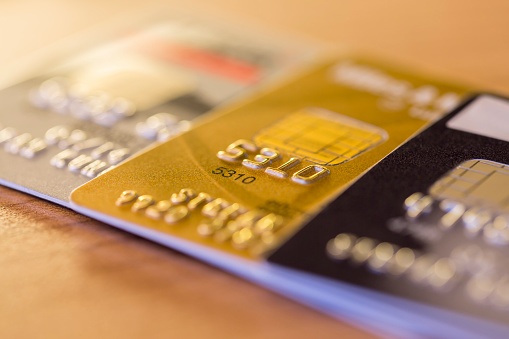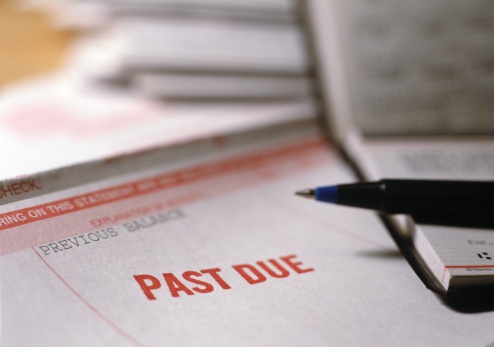Scura, Wigfield, Heyer, Stevens & Cammarota Blog
- Blog
10 Ways to Improve Credit After Bankruptcy in NJ
It is not an understatement to say that filing for bankruptcy can impact your credit score. Many fear the intense impact such a filing can have on their score, fearing apocalyptic repercussions of such a deal. Many of these anxieties are exaggerated responses, since very often bankruptcy can have a positive impact on those who need relief most. Filing for bankruptcy can result in score improvement between two months and one year of filing if you had serious delinquencies on debts prior. However, those with perfect credit scores or those whose debts primarily that do not show up on New Jersey credit reports, such as medical bills, will often see a significant drop in their credit score after filing for bankruptcy.
Under the Fair Credit Reporting Act, Chapter 7 Bankruptcy remains on your credit report for up to ten years before being removed, while Chapter 13 Bankruptcy lasts for only seven. What many people fail to realize, however, is that you can immediately start rebuilding your credit after filing for bankruptcy. You become eligible for an FHA mortgage only two years after the discharge of debt, with car loans being available relatively soon after. You will receive offers for low-limit credit cards months after filing for bankruptcy. Furthermore, if you file Chapter 13, the impact on your credit score is far less severe, since part of Chapter 13 involves creating a payment plan to pay back a percentage of your debt. Doing so greatly reduces the potency of credit score detraction, which means your score goes up shortly after going down.
Regardless, for many these improvements are not simply enough. While waiting and allowing the bankruptcy process to simply go is course will help raise your credit score up if it fell during bankruptcy relief, there are still many people who want their score improved immediately after filing. For all these people, there is still little reason to worry. There are multiple methods that one can incorporate to rapidly improve credit scores after filing for bankruptcy. The strategies on this page are designed to benefit you so you can live your life after bankruptcy.
1. Apply for Credit After Bankruptcy

In trying to raise your credit score, it’s vital you try to obtain new credit. As previously mentioned, you will be offered new credit cards sometimes months after filing for bankruptcy. Though the rates might not be the best or even desirable, you should consider using these to obtain new credit.
From there, you need to be diligent about paying off all credit cards or obtained credit immediately and consistently. Doing so will raise your credit score by proving consistently by improving your credit history. The good news is that, every time you manage to pay off your credit, you will continue to add to your good credit score, which will only serve to benefit you in the long run.
If you are having trouble, you should try to apply for a secured credit card. Secured credit cards require you to leave a cash deposit, usually equal to your credit line. The money is returned to you if you upgrade to an unsecured credit card or close your credit line. These are effective ways to raise your credit score, in part because secured credit cards are designed to help people with low credit ratings boost up their scores through continuous hard work.
Once you have your line of credit, buy what you can with your card, all while paying it off in a responsible and timely manner.
2. Use Secured Loans
Paying off credit is incredibly beneficial for your credit score but paying off secured loans in conjunction with that might prove even more helpful in the long run. A secured loan is a loan of money with some collateral to back up the contract. Should you fail to pay back the loan, you might lose your collateral.
An example of a secured loan can be a car payment plan. Failure to pay off the monthly payment means you lose your collateral – in this case, your car. Creditors are more comfortable giving out loans knowing they can collect something if you fail to pay, which gives you a chance to prove yourself to said creditors, even if your credit score is low. Consequently, if you manage to pay off said loans, your credit score will drastically increase.
That said, some creditors might hesitate to approve a loan for you. If this is the case, then you might want to first obtain a secured credit card in order to build up your credit score before applying for a secured loan.
3. If Possible, Avoid Job Hopping
.jpg?width=6144&name=business-people-working-P74GLHN%20(1).jpg)
Stable income helps pay off credit and loans. This is an obvious statement, but it remains vital. Having stable and consistent income can only help you pay off bills in a timely manner, which helps with bankruptcy payment plans and current owed money to creditors. If you have long interruptions in your employment or tend to hop from job to job, this flow of income might be hampered, which might lead to you accruing further debt, which means your credit score will suffer.
However, there is another major reason why you should avoid job hopping. Creditors who issue loans and credit often review job history when extending their resources. Creditors like seeing consistent job histories, which means you have long-term employment at a singular place of work, often without any significant issues or interruptions.
Many individuals might have difficulty holding down a singular job. This can be due to personal issues, such as truancy, a difficult personality, or just a lot of bad luck. If these problems prevent you from maintaining your job, it’s vital that you work to overcome these personal failings in order to consistently keep a stable place of employment.
Of course, this is not to say you cannot under any circumstances leave your job. If you work in a toxic environment that is negatively affecting your mental health, you should leave for your own peace of mind. Your mental health is necessary not only for you to properly manage your finances but also for your quality of life.
In addition, don’t fear taking on a great financial opportunity because you want your job record to appear stable. If you land a new position that can offer you increased income, take that new opportunity. After all, while it might be problematic if you keep hopping from job to job, few creditors are going to be upset seeing you leave one job for a higher paying one.
4. Check Credit Regularly
You are entitled to obtain a free credit report every year. This credit report will allow you to check to see if there are any errors or tax related tasks you must undertake to improve or manage your affairs. It will also help you be aware of what lenders see when you request for loans or credit.
If you seek to obtain a regular report, you can use Annual Credit Report to see your credit report for free that year. Three major credit agencies -- TransUnion, Experian, and Equifax – give you a yearly credit report for free. Check each one, then use this information throughout every year in order to manage your affairs and understand which elements and components of your credit require improvement.
5. Keep up on payments accounts unaffected by bankruptcy

Undergoing bankruptcy does not liberate you from ever paying debt. While unsecured debt will be wiped and payment plans will be arranged to pay off secured debts, during and after bankruptcy, you will acquire new debts to pay off. Some accounts will require additional payments or accounts separate from either your bankruptcy relief payment plan or erased debts. Perhaps you bought a car shortly before filing bankruptcy or have a car loan. While bankruptcy relief will help with your other long-term payments, you will still need to pay off those accounts and payments unaffected by you filing bankruptcy.
Doing this allows you to keep up your credit score by paying off new payments. Bankruptcy helps eliminate old debt, but that doesn’t mean you can’t accrue new debt by simply doing what is expected of you during the bankruptcy process. Bankruptcy relief can only offer relief for what lies within your past. The present, however, can overwhelm you, and those unfulfilled financial responsibilities can drain your credit score, if you are not on top of these matters.
Do not forget about your obligations, especially if you open new lines of credit or secured loans shortly after entering bankruptcy. The very things you did to raise your credit score can quickly take you down if you choose not to fulfill the obligations of your various open accounts.
6. Have Your Payments be Reported to the Credit Bureaus
Activity reported on your credit report can elevate your credit score. Paying off credit and loans can manage to elevate your credit score because these are required to be reported to credit bureaus. However, not all payments you will take out will be sent to said bureaus, which means you will never receive any credit for some of your financial activity.
Utility, phone, and cable companies are not required to report you paying your bills. This means that you are paying off multiple bills every month without receiving any due credit for it. However, that does not mean that you can’t boost your credit report by paying your electric bill. All you need to do is contact these creditors and ask them to submit regular reports on your continued payments to credit bureaus.
It is vital to keep up regular contact with these creditors to ensure that they are continuing to report on your continued work. This will allow you to continue to watch your credit score continue to rise as you continue to keep the lights on in your house.
7. Keep Your Balances Low

Credit cards are a great way to raise and elevate your credit score. Paying off your credit cards is necessary in order to build your credit. However, it would be ill-advised to jump into binge-buying in order to pay off as much credit as possible.
Available credit is rewarded on your credit report. That is not to say you should never use your credit card – after all, paying off credit is how you can raise your credit score. However, by using less than thirty percent of your available credit, you will manage to improve your credit score.
Furthermore, it’s just wise to not overextend yourself financially after requiring bankruptcy relief. You will want to build your savings and spending too much money is a terrific way to run out of money you’d need should the worst happen. Use available credit and pay it off quickly but keep your credit balance low so you can elevate your credit score while also not wasting your money.
8. Listen to Your Credit Counseling
During the bankruptcy process, you need to take two required credit counseling courses. These courses will go over vital information about how to properly budget your household and consumer debt. These courses can offer instrumental advice that can help you improve your life after receiving your fresh start following bankruptcy relief.
For starters, knowing how to properly budget your home can help you handle your credit and secured loans, which you will need to boost up your credit score. On the other, they will help you manage financial payments for all your needs while still holding onto some money you can use to further establish your savings.
Their advice will prove instrumental then dealing with your future. It will go in-depth onto numerous techniques you can maintain and develop that, in the long term, will only serve to help you as you keep pushing forward on your financial journey. Credit Counseling is not a quick fix to any credit difficulties. It’s required for individuals filing for bankruptcy because it will help you become a better manager of your financial status.
9. Be Careful About Managing Your Credit Cards

As mentioned earlier, you will receive numerous credit card offers months after filing for bankruptcy. While we did state earlier that it’s important to open up new credit as well as maintain a significant proportion of available credit, it’s equally important to understand how each of your cards function.
The credit cards you can receive after bankruptcy will have high interest rates and very high penalty fees. Failure to pay them might lead down a slippery slope down into debt. This makes it instrumental to manage your credit cards. Understand your available credit, the interest rates, and penalty fees. Always keep it in mind to ensure you do not go over your available credit and pay everything in a timely manner. This will allow you to make the most of the benefits available to you as a credit card carrier, while also avoiding the pitfalls of them.
As such, read every credit card statement that you receive every month. While this is a recommended process so you can check to see if there is any suspicious activity on your card, it is also useful to ensure there are no inaccuracies on your card. Check the interest charges, penalty charges, etc. every month to ensure that nothing is inaccurate, and you are paying what you agreed to pay. There are an alarming number of times these numbers are not accurate. If you find a discrepancy, contact your creditors and credit card company in order to determine the reasons why these numbers are inaccurate. You should not pay money based on a mistake.
Keeping up on your credit cards, however, is not enough. As your credit improves, you will have access to superior credit cards with less severe rates and penalty fees. Once you can upgrade your credit card or receive a better one, do so. If you need to close your old line of credit, do so. Make sure there is nothing left to pay on your old credit cards so you can move past your weaker lines of credit without it dragging you under the currents of severe late fees.
10. Subscribe to a monitoring service through one of the major agencies
In addition to monitoring your credit card rates, it’s vital to monitor your credit. The three major credit agencies -- TransUnion, Experian, and Equifax – all have credit monitoring services that can tell you of any inquiries or changes to your credit score. It’s vital to know if something you’re doing is negatively or positively affecting your credit score so you can know which activities you need to either devote more focus or nip in the bud for the betterment of your credit report.
But more than just your credit report, they can better monitor your lines of credit. Is someone using your credit card fraudulently? This sort of suspicious activity can overwhelm your finances and detract from your overall credit score. These services can help you manage and handle your credit in case there is anything odd that transpires that you might not notice or realize.
However, putting these major credit agencies aside, there are numerous other agencies that provide credit monitoring services. You do not need to select a monitoring service through one of the biggest agencies. You do, however, need to do your research to find which service is best suited for your needs.
More than that, however, the service should be inexpensive. There are many monitoring services, but many overcharge. You do not need to be taken advantage of by a predatory agency anticipating desperate clientele. Instead, shop around. Look at the various prices available to you for monitoring services, should you choose to move outside the three major credit agencies. In addition, try to see if there are any user reviews on the services. You might find an inexpensive monitoring service, but also find that the user response to the agency is poor. The monitoring service needs to be inexpensive but also provide you more than your money’s worth.
There are numerous bits of advice you need to consider when trying to bring your credit score up following your filing for bankruptcy. These ten tips are just the start of what ought to be a long journey into debt relief. However, in order to raise your credit score, you need to build habits that will continue to carry you forward after filing and into a future of financial stability.
However, at no point during your journey fear that you need to face the burdens of debt relief on your own. We are here to help. The attorneys at Scura, Wigfield, Heyer, Stevens & Cammarota LLP can help. Please call our offices to schedule a free consultation and hear your options.
Share Article
Need Help? Contact Us Today!





Lists by Topic
- Bankruptcy (320)
- Personal Injury (95)
- Chapter 13 (52)
- Chapter 7 (50)
- Debt Management (50)
- Foreclosure (47)
- Accident (32)
- Car Accident (26)
- Chapter 11 (24)
- Business Bankruptcy (19)
- Credit (18)
- Insurance Claims (17)
- Business Law (12)
- Litigation (12)
- Employment Law (11)
- Probate and Estate Law (11)
- Damages (10)
- Medical (10)
- Product Liability (10)
- Workers Compensation (10)
- Attorney (9)
- Consumer Bankruptcy (9)
- Commercial & Residential Real Estate (6)
- Slip and Fall (6)
- Contracts (5)
- Premises Liability (5)
- Repossession (5)
- wrongful death (5)
- Video | Bankruptcy (4)
- Bankruptcy Cost (3)
- Corporate Litigation (3)
- Trial Law (2)
- student loans (2)
- tax (2)
- Attorney Fees (1)
- COVID-19 (1)
- Certified Civil Trial (1)
- Dog Bites (1)
- News (1)
- Relocation Assistance (1)

